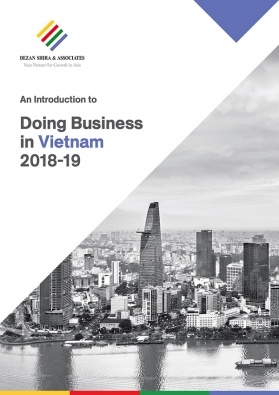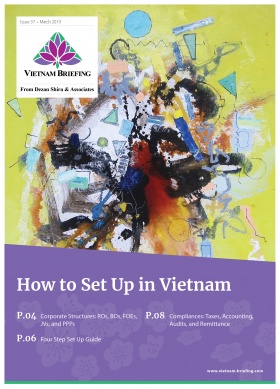Public Private Partnerships in Vietnam – Part 1: Industry and Contract Structures
With annual growth projected to surpass 6 percent in 2016 and maintain an average over 4 percent until 2050, opportunities have never been greater for investment in Vietnam’s aging and often inadequate infrastructure. In the following article, we examine importance Public Private Partnerships (PPPs) as a means of investment, and take a look at sector specific opportunities as well as contract structures current available to foreign investors.
Opportunities in Vietnamese Public-Private Partnerships
Industries Specific Opportunities
In its mid-term consultative group meeting for 2011, Euro Cham Vietnam estimated that Vietnam will require nearly US$160 billion in infrastructure investments by 2020 to meet the needs of its growing economy. The Vietnamese government has defined areas in need of new or modernized infrastructure by the 2020 deadline through its Master plans, compiled on a sector by sector basis.
When it comes to large-scale infrastructure projects, substantial opportunities exist in a variety of industries including transport – building of roads as well as public transportation systems – and energy. In recent years, electricity demand has grown concurrently with rapid surges in wage inflation, and the resulting stress on infrastructure is likely to require major investment to provide adequate service to the Vietnamese population.
Vietnam’s rapid economic growth has triggered increasing rates of urbanization and exports, which have in turn increased congestion, and demand for public transport systems including roads, rail, and subways. Projects of this nature are likely to see significant support, as there is both a social and commercial benefit to their completion.
In addition to Transport and Energy, major investments will be needed in the waste treatment sector, as untreated waste is regarded as a growing issue in Vietnam. Most waste isn’t properly treated, threatening the environment and public health. Water waste management is also a sector investors should keep an eye on.
Decree No. 15/2015/ND-CP Opens Sectors for Investment
While previously mentioned sectors present unique opportunities for investment, they are far from the only opportunities that Vietnam offers. Investors should be aware that, following the adoption of Decree No. 15/2015/ND-CP (the “PPP Decree”) in 2015, many sectors previously restricted from participating in PPPs will now be open for investment. According to article 4 of the decree, in addition to transport infrastructure, power plants, hospitals and waste treatment plants, PPP investments may be made in the following industries:
- agriculture
- education
- culture
- sports
- construction of Government workplaces
- social housing and cemeteries
- science and technology facilities
- economic and industrial zones.
Added Incentives for Investment
As well as tapping into trends presented by the prevailing economic conditions and the opening of specific sectors to PPPs, government officials have promoted investment-friendly rules for the construction industry. Depending on the industry in question, companies willing to invest in Vietnamese projects may gain access to any of the following incentives:
- exemption of land use fee for the allocated project area,
- tax preferences for goods imported for the projects,
- Corporate Income tax reduction or exemption
Optimizing Investments: A Guide to PPP Contracts in Vietnam
Foreign investors willing to take part in public construction projects can currently choose between several forms of contractual arrangements with their governmental counterparts. This choice, while initially limited to three types of contracts, has been widened over the past years through the introduction of the more general category of Private-Public-Partnership via decision 71 on pilot PPP investment projects dated November 9, 2010.
Streamlined Contract Guidelines Under Decree No. 15/2015/ND-CP
In addition to opening sectors for Investors seeking PPPs, Decree No.15/2015/ND-CP also provides a single legal framework for private investments in the public infrastructure sector. This is accomplished through the consolidation of Decree 108 on BOT, BTO and BT projects and Decision 71 on pilot PPP projects, which co-existed until then, leading to confusion concerning the distinction between BOT projects and PPP projects. Following the issuance of Decree 15 it is now clear that a BOT project is a form of PPP.
Broadly speaking, the PPP Regulations define a public private partnership as occurring when: “the State and investor jointly implement projects on development of infrastructure or provision of public services on the basis of project contracts“.
In accordance with the guidance issued under decree 15, foreign investors are now able to choose from among the following contractual arrangements when entering into PPPs in Vietnam:
- “Build-Transfer-Operate” (BTO): after completely building this infrastructure facility, the investor transfers it to the Vietnamese State. The Government will grant the investor the right to operate that facility for a specified duration to recover investment capital and earn profits
- “Build-Transfer” (BT): after completely building this infrastructure facility, the investor transfers it to the Vietnamese State. The government will create conditions for the investor to implement other projects for recovering investment capital and earning profits or will make payments to the investor as agreed in the BT contract.
- “Build-Operate-Transfer” (BOT): the investor builds, then operates an infrastructure facility for a specified duration. Upon the expiration of this duration, the investor transfers without compensation the facility to the Vietnamese State.
- “Build-Own-Operate” (BOO): after the completion of the facility, the investor(s) shall own and have the right to commercially operate the facility for a fixed term
- “Build, Transfer and Lease” (BTL): after the completion of the facility, the investor(s) will transfer the facility to the authorized state agency and will have the right to provide services on the basis of a commercial operation for a fixed term.
About Us
Vietnam Briefing is produced by Dezan Shira & Associates. The firm assists foreign investors throughout Asia from offices across the world, including in Hanoi and Ho Chi Minh City. Readers may write to vietnam@dezshira.com for more support on doing business in Vietnam.
- Previous Article Vietnams Industriezonen
- Next Article Vietnam News Brief: Information Security, Venture Capital Regulations, and New Tariff on Steel Imports





























